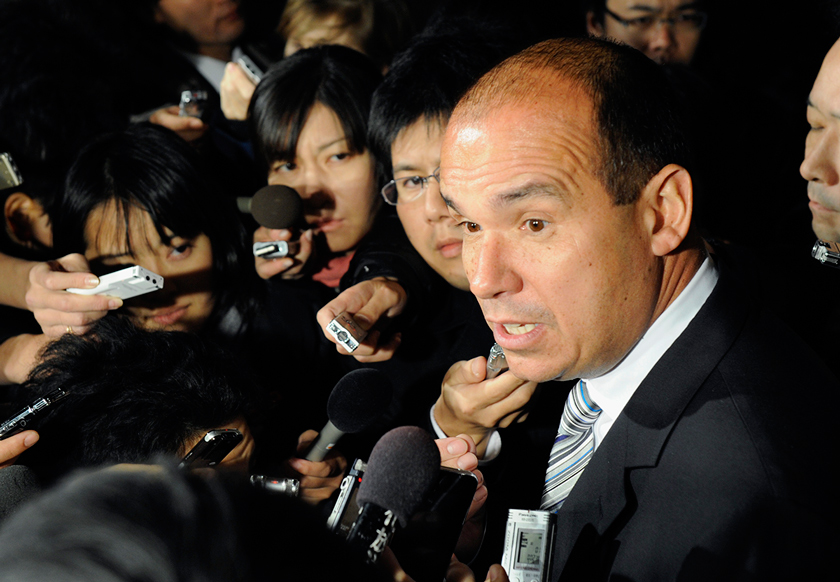The whistleblower has often provided movies with an underdog character whom audiences can root for such as Russel Crowe’s character in Michael Mann’s The Insider. In 2002 Time magazine’s Persons of Year were three women, real whistleblowers who exposed FBI intelligence failures as well as corruption at corporate giants Enron and WorldCom. They were hailed as heroes for defying the larger entity to which they belonged in order to expose truth . In 2011, then president and CEO of the Japanese Olympus Corporation, Michael Woodford, blew the whistle on a 1.7 billion dollar fraud the company kept secret for more than two decades and was abruptly dismissed from his post by the board of directors citing “cultural differences” in management style. Instead of being hailed a hero, the few Japanese media that bothered to cover the story used the angle of this just being another example of a foreigner failing to adapt to the Japanese way. The international press, however, reported a brewing scandal in which Woodford’s ousting was done to damage control the effect to the company’s corporate portfolio.
But was this just a cut-and-dry case of whistleblower versus corporate giant? This is what Yamamoto Hyoe’s documentary, Samurai and Idiots-The Olympus Affair attempts to shed light. At work was not just mere corporate greed, but a clash of cultures as well. Yamamoto, having spent most of his adult life in the U.S., immediately saw how the differences in cultural values played a role in what happened, and more importantly, how it was handled both in Japan and abroad. But Yamamoto is not out to point fingers or “blow the lid off” some hotbed issue. The documentary is meant to examine basic questions about loyalty vs. duty and cultural expectation vs. moral obligation as seen through Eastern and Western filters. In Japan, loyalty to one’s company is a socially ingrained expectation. Backing ones superiors, no matter what, are the hallmarks of an admirable employee. Whistleblowers are seen as an antithesis to these values, often given hard treatment by society and the media when scandals first break in to public consciousness. However, this does not mean such a culture or those who uphold those values are necessarily the “villains” of the story. The documentary’s title is derived from comments Woodward made regarding those who supported him–the samurai–and the “idiots” in the boardroom who ousted him. From the press kit:
But if those who supported Woodford can be termed as samurai, then the Olympus executives, the “idiots” as Woodford termed them, are also samurai fighting on the other side of the front line. Their blinding obedience and unquestioning loyalty ultimately succeeded in shutting out Woodford and external pressure that was imposed upon Olympus. Men like Kikukawa, Mori, Shimoyama, and Takayama whose undaunted loyalty to the lordship ultimately prevailed and protected the company.
Each player in this story was doing what he thought was right. And therein lies the fascinating tale of East and West which Yamamoto hopes to illuminate. The documentary has been screened at a variety of festivals abroad including the Asian Film Festival of Dallas where it won the Special Jury Award, and its Japanese release is slated for the spring of 2018. Meanwhile, Yamamoto is currently at work on a documentary dealing with the issue of tattoo artists being arrested in Japan. I’m keeping an eye on its development and will write about it once more is revealed.
UPDATE
An announcement was made at a press conference held with the Foreign Correspondents’ Club of Japan revealing the movie will open in May, 2018 at the Image Forum theater in Shibya. Check the Indievisual Facebook page for details as they are announced.

